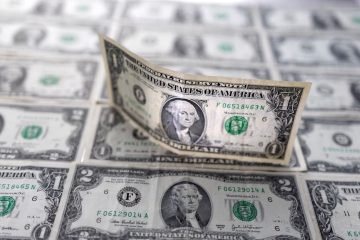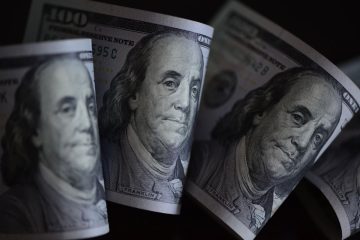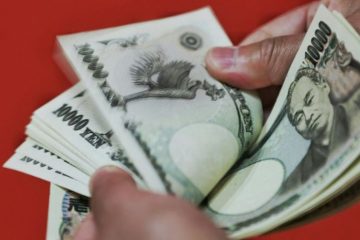Can anything stop bitcoin? Price above $8,000

Cryptocurrency exchanges are rife with “pump and dump” scams that would be illegal in most markets and leave unsuspecting investors at risk of large losses, a Business Insider investigation has found.
Crypto traders are using the secure messaging app Telegram to orchestrate the scams. Their strategy is to suddenly inflate the price of a cryptocurrency by coordinating a few buyers to act at specific times.
Then, after the price rises, they attract other, unwitting investors to buy into the price momentum. The “pumpers” quickly sell the coin to make a profit. The coins often crash just minutes after the initial surge, leaving the second wave of investors with losses.
Messages on the Telegram channel “PumpKings Community.”Oscar Williams-Grut/Business Insider/Telegram
The same scam was most famously carried out in the stock market by the “Wolf of Wall Street” Jordan Belfort, the convicted securities fraudster whose exploits were turned into a film starring Leonardo DiCaprio.
Business Insider observed “pump and dumps” for the cryptocurrencies UBQ, VCash, Chill Coin, Magi Coin, and Indorse over the last two weeks alone. All the scams took place on either Las Vegas-based exchange Bittrex or Russian exchange Yobit.
Ben Yates, a senior associate at law firm RPC who has looked closely at the space, told Business Insider: “It’s clear from even casual monitoring of the exchanges that this sort of activity is rife, particularly with altcoins with smaller circulation.”
Cryptocurrency exchanges and markets are unregulated in most parts of the world and so these activities are not illegal. However, they highlight the risks associated with this new corner of finance, which has attracted huge amounts of capital in 2017 but is regarded as the “wild west” by critics.
“Pump and dump” schemes are illegal in government-regulated public stock markets, like the London and New York stock exchanges. Several securities lawyers BI spoke to argued that cryptocurrency exchanges should be regulated in the same way. The US Securities and Exchange Commission has said digital currencies are likely to fall under existing securities laws, but it has so far taken little enforcement action.
A $ 200 billion market
Cryptocurrencies have exploded in popularity in 2017 thanks to the success of “initial coin offerings” (ICOs), where startups issue new digital coins in exchange for real money used to fund their ideas. These coins can be traded on online exchanges, offering greater liquidity to investors in private companies.
Boxer Floyd Mayweather has promoted an ICO. Ethan Miller/Getty Images
Over $ 3 billion has been raised through ICOs since the start of the year and there are now more than 1,200 cryptocurrencies in circulation, according to CoinMarketCap.com. Celebrities such as Paris Hilton, boxer Floyd Mayweather, rapper The Game, and DJ Khaled have all endorsed ICOs, helping raise the profile of digital currencies.
While retail investors have rushed into the new market, many people have warned about the potential dangers of the emerging space.
Belfort himself, who served 22 months in prison for securities fraud and money laundering in 2000, said recently that ICOs are “a huge gigantic scam that’s going to blow up in so many people’s faces. It’s far worse than anything I was ever doing.”
The European Securities and Markets Watchdog (ESMA) said on Monday that ICOs are “extremely risky and highly speculative investments” and “many of the coins or tokens… have no intrinsic value other than… to use them to access or use a service/product.” Investors risk “the total loss of your investment”, ESMA warned.
Despite similar warnings from other regulators, the total cryptocurrency market has ballooned to almost $ 200 billion this year. However, well-known coins such as bitcoin, ethereum, and bitcoin cash account for 80% of the market by value, meaning there are a huge number of low-value coins in circulation. Most have thin trading volumes, making them ripe for “pump and dump” manipulation, like penny stocks.
‘Market manipulation 101’
“Pump and dump” scams involve people artificially boosting the price of an asset before offloading it to unsuspecting investors at the higher price.
Scammers first organise coordinated buying of a particular coin on a set exchange at a set time. The wave of demand pushes up the price.
The “pumpers” then use social media, online discussion forums, and message boards to attract new buyers. They generally argue that the price spike is evidence of a sustained rally. The “pumpers” then offload their coins to the new buyers who come into the market at a higher price. In most cases, this coordinated “dump” depresses the price of the coins back to their pre-pump levels.
How a pump and dump scam is organised and executed. Business Insider/Screenshot/Telegram/Yobit
It’s unclear how frequently those involved in the “pump and dump” schemes profit from them, as there is no way to guarantee that any given pump will attract enough new buyers into the market.
Mati Greenspan, a senior market analyst at trading platform eToro who covers the cryptocurrency markets, told Business Insider: “Pump and dump schemes are a real problem. Besides the fact that it is illegal and unethical, the results can be incredibly unpredictable.”
Regardless, such market manipulation would be illegal in most regulated markets whether or not the participants profited.
Ben Kingsley, a partner at law firm Slaughter & May who specialises in financial regulation, told Business Insider: “If you’re organising people to say ‘this is fantastic, I’m amazed everyone’s not piling into it’ as a way to stimulate demand with a view to then selling into a rising market, that’s market manipulation 101.”
RPC’s Yates said: “The sorts of coordinated pump and dump activities we are seeing on cryptocurrency markets would fall foul of numerous prohibitions were they carried out on stock markets – they are practically textbook examples of market manipulation and false trading, for example.”
‘PumpKing Community’
Those involved in the manipulation often make little effort to hide their activities. The “pumping” of coins is regularly referred to in Telegram groups where they are organised.
One group, “PumpKing Community,” contained links to “Instructions for pump on Bittrex,” as well as links to Facebook groups and Telegrams channels where “pumpers” could go to attract new investors to the market.
Channels like these attract participants to the scam with promises of wealth and quick profits. The PumpKing guide read: “Our PUMP will consist of 4 main stages, and we strongly recommend that you divide your deposit into 3 parts in order to get the maximum profit.”
The admin of the PumpKing Community channel on Telegram goes by the name of Ton Montana, an apparent reference to the film Scarface.Screenshot/YouTube/Telegram
“PumpKing Community” is run by a Telegram user called Ton Montana, an apparent reference to the drug lord character of the film Scarface.
Telegram is heavily encrypted and users can hide behind aliases, meaning it is difficult to track those involved. Ton Montana did not respond to a Telegram message sent by Business Insider.
It is unclear how many people are involved in “pump and dump” scams but groups coordinating them have thousands of members. “PumpKing Community” has over 14,000 members.
Michael Jackson, a venture capitalist at Mangrove Capital who has studied the ICO market, told Business Insider: “I think it’s pretty common — not least because it’s a pretty natural thing to do. Many of the pump and dump guys probably don’t think there’s anything wrong and it is just natural PR.”
He added: “Of course, in many regulated environments, such activities end the perpetrator in jail pretty quick.”
An open secret
Knowledge of the “pump and dump” problem appears to be an open secret among many cryptocurrency traders. Several have written blog posts warning traders and new cryptocurrency investors to be wary.
Indian-based crypto trader Abdul Qadir Faridi wrote in a blog post in July that people “profit from these pump & dump activity but by indirectly stealing some new group members money or money of the people buying it for higher price after seeing the surge in price.”
Brian Schuster wrote in a blog post: “Many users who bought at the peak (called bag holders) will often be left holding a cryptocurrency with declining value. These buyers are the true targets of these pump and dumps, the users who will pay 10x to the insiders for a cryptocurrency that is actually worthless. And once the price rises and falls, [it] will almost never return in value.”
‘Regulators will slowly move towards a solution’
“Pump and dumps” persist because cryptocrrency markets and exchanges are largely unregulated. Financial watchdogs around the world are only just getting to grips with initial coin offerings, with US and UK regulators cautioning investors on the risks of the market. China has banned both ICOs and exchanges.
A Telegram group coordinating buying of a specific token at a specific time. Business Insider/Oscar Williams-Grut/Screenshot/Telegram
Slaughter & May’s Kingsley said he believes regulators “ought to” take the same approach to policing these scams in the token trading world as they do in relation to securities because “it creates the same harm.”
“It causes unwitting investors to suffer a loss, and it undermines the integrity of those markets,” he said.
“There is definitely some legitimate value-adding activity going on in the cryptocurrency and public coin offering space — not all of it is chancers and con artists. But the problem is when you have activity that either definitely is or might be of that nature, it undermines confidence.”
The chairman of the US Securities and Exchange Commission (SEC) said earlier this month he is “yet to see an ICO that doesn’t have a sufficient number of hallmarks of a security,” suggesting the watchdog is minded to regulate the space like the stock market.
It is unclear whether exchanges Yobit and Bittrex are aware of “pump and dumps” occurring on their platforms. Yobit did not respond to a request for comment from Business Insider.
Asked for comment via its online form, Bittrex said: “Due to an unprecedented amount of growth in a relatively short amount of time we’re experiencing a longer than usual wait time responding to and resolving your requests.”
The message gave no specific comment on the points put to the company by BI. Bittrex said in its message that the company is “actively training new personnel and streamlining our support system to better handle the demand.”
Bittrex advertises on its website that it was “one of the first companies to apply for New York’s Bitlicense,” a bitcoin trading license conceived by the New York Department of Financial Services (NYDFS). The NYDFS declined to comment on whether it was aware of pump and dump scams in the cryptocurrency market or whether it was investigating activity on Bittrex.
The SEC declined to comment. The SEC has previously warned that most coins issued through ICOs would likely qualify as securities, and thus be subject to the same regulations, and has warned investors to be wary of celebrity endorsements.
Mangrove Capital’s Jackson told Business Insider: “Regulators will slowly move towards a solution, recognising the value in ICO for the long-term balanced against the need for a proportionate regulatory framework with significant penalties for avoidance or transgression.”
He believes the market will move to self-regulate, with exchanges making sure participants “act in certain ways and with good procedures” in the same way as stock exchanges and the Lloyd’s of London insurance market do.
The companies behind the coins BI witnessed being “pumped” — UBQ, Chill Coin, Magi Coin, and Indorse — could not be reached for comment. VCash did not respond in time for publication.








